After the fall of the Berlin Wall in 1989, Clifford Geertz predicted that the world would be characterized by ‘deep diversity’, ‘a sense of dispersion, of particularity, of complexity and of uncenteredness’ rather than unified world order, as stipulated by the then consensus.
In an age of identity politics and culture wars, Geertz’s insights sound even more powerful today than they did at the time. According to the American anthropologist, our task is ‘to penetrate the dazzle of the new heterogeneity’ and analyse the paradox that confronts us: the world is both more global and more divided than ever in human history. The sense that we find ourselves in ‘a scramble of differences in a field of connection’ is even more immediate, as is the realization that there is a multiplicity of alternative, sometimes conflicting and clashing, visions of the good.
This focal point, inspired by a lecture that Geertz delivered in 1995 at the Institute for Human Sciences in Vienna, summarized in the institute’s magazine, will engage with these issues. It follows the launch of a research programme of the same name at the institute in January 2023, coordinated by Clemena Antonova.
The collection of essays is an extension of earlier focal points ‘Eurasia in Global Dialogue’ (2018-2023, led by Clemena Antonova) and ‘Russia in Global Dialogue’ (2012-2018, led by Tatiana Zhurzhenko). Further texts have been contributed by journals in the Eurozine network.

In collaboration with
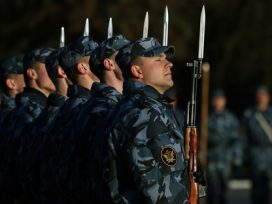
The silence of the lambs
Why the West should stop being angelic towards Putin
For Vladimir Putin, the West’s tolerance is weakness and dialogue is failure to impose force. Because KGB-styled Russia believes that either you devour, or you are devoured. Europe’s “silence of the lambs”, writes Volodymyr Yermolenko, is not a proper response to Russia’s war.

The hand that feeds
The first victims of sanctions and counter-sanctions
As Russia becomes more and more isolated, the Russian government will need to provide for all those who support it. Maxim Trudolyubov explains why those who can provide for themselves will be the first victims of western sanctions and Russian countermeasures.
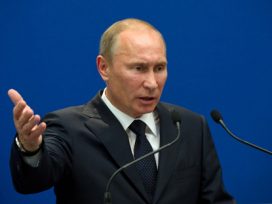
Commander of a fortress under siege
What Putin's strategy means for Russia
Sanctions on Russia may tip economic stagnation into recession and widen the country’s gap with western nations still further. This time Putin seems to be plying an isolationist course without regard for the consequences, writes Maria Lipman.
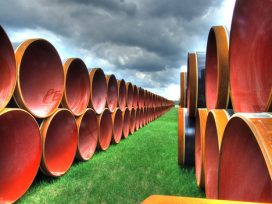
The West must start to put its long-term interests above the instant gratification of London bankers, German gas traders and real estate dealers all over Europe, who are yearning for Russian money. Then the new Cold War can be won, writes Vladislav Inozemtsev.
Poet and essayist Olga Sedakova takes her fellow Russian writers and intellectuals to task for responding with silence to the light emanating from the Maidan: a light of hope, of solidarity and of rehabilitated humanity. A light that Russia would do well to see itself in.
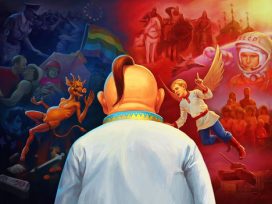
The decline of Gayropa?
How Russia intends to save the world
As the winter Olympics opened in Sochi amid controversy over Russia’s anti-gay laws, Tatiana Riabova and Oleg Riabov showed how official discourse in Russia brands “European sexual deviancy” a natural result of western democratic development; and Russia as the last bastion of “normalcy”.
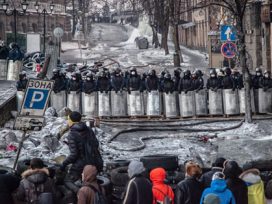
A surge of state violence and the subsequent curtailment of citizens’ right to protest, combined with an expansion of the authorities’ right to use force: Kirill Rogov reveals how the “Putin doctrine” previously applied to protests in Russia brought Ukraine to the brink of civil war.
Russia Inc.
The new realities of the Russian state
Europe should prepare itself for long-term cooperation with the energy-rich kleptocracy that has developed on its eastern borders. Because, given that the personal enrichment of politicians is part of the very foundation of the regime, Russia’s ruling political elite is not about to change any time soon.
Under cover
The emergence of Russia's new foreign policy
That Russia will never be a superpower as the USSR once was leaves it searching for a new international identity. Fyodor Lukyanov argues that Moscow’s policy today is a skilful imitation of striving for global status, intended to conceal the narrowing of the sphere of its immediate interests.
Reconfiguring power
The permanent election campaign
Ever since the outburst of protests and political discontent around the December 2011 elections in Russia, the country seems to be on the verge of change. But what kind of change? Will civic unrest, which persists with a varying, but hardly increasing intensity, bring about democratization, or will it induce Putin to introduce measures that strengthen his control? Russian political analyst Nikolay Petrov presents his reading of recent developments.
Colonizing oneself
Imperial puzzles for the twenty-first century
The IWM series “Books in perspective” presents publications related to the Institute’s research fields to the local academic community. Authors are invited to discuss their ideas with the audience. On 22 May 2012, Russian literary scholar Alexander Etkind talked about his recent work Internal Colonization. Russia’s Imperial Experience (Polity, 2011). Here, he explains why he wrote this book.
The Stalinist order, the Putinist order
Private life, political change and property in Russian society
The “Stalinist order” continues to lurk in aesthetic forms and written documents; from an architectural perspective, it lives on as long as the buildings survive. And merges with the new order, in which the new “elite” buy up the same buildings and imitative newbuilds for artificially inflated prices.
Peter Pomerantsev enters the matrix of managed democracy that underpins postmodern dictatorship in Russia. A society of pure spectacle, with fake parties, fake opposition, fake scandals and fake action: this is the political technologists’ project, in which (almost) everything becomes PR.
1812 in Russland und Europa
Inszenierung, Mythen, Analyse
Der Russlandfeldzug, zu dem die Grande Armée im Juni 1812 aufbrach, markiert in der politischen, sozialen und kulturellen Geschichte Europas eine Zäsur. Wenige Monate später war Moskau niedergebrannt. Napoleons Armee zerfiel auf dem Rückzug, das Russische Reich stieg zum “Retter Europas” auf. Diese Kriegsereignisse führten vor 200 Jahren zu einer Neuordnung Europas. Sie ging mit innergesellschaftlichen Veränderungen einher, beschleunigte die nationale Selbstfindung und wurde zu einem Gegenstand der Erinnerungsarbeit.







